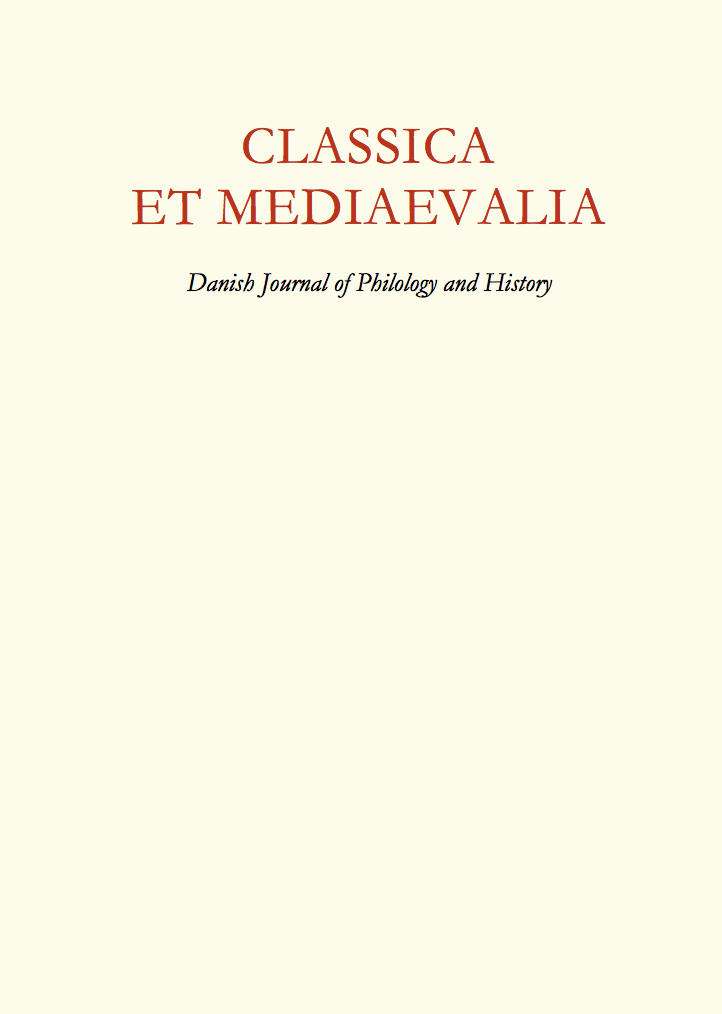Only Greeks at the Olympics? Reconsidering the Rule against Non-Greeks at 'Panhellenic' Games
DOI:
https://doi.org/10.7146/classicaetmediaevalia.v67i0.111033Abstract
This paper argues that the so-called “Panhellenic” games never knew a rule excluding non-Greeks from participation. The idea that such a rule existed has been accepted since the nineteenth century, when the idea of nationality played a much stronger role in the understanding of Greekness. Recent scholarship on Greek identity and ethnicity has shown that these were flexible and consta ntly renegotiated concepts and that the shared culture performed and the networks formed at sanctuaries and games played an important role in this negotiation process. Not only can the role of Olympia and other sanctuaries in the formation of Greek identit y now be understood without having recourse to a rule of exclusion, the flexible nature of identity also would have made it virtually impossible to the implement such a rule.
The paper starts by reconsidering the well - known episode about Alexander I at Olympia – the central source text for the supposed rule – and addresses some common assumptions about the role of the hellanodikai . It is argued that this source, while offering insights in to the ethnic discourse of the fifth century BC, does not actually pro ve the existence of a general rule against the participation of non-Greeks. Section two surveys the evidence for admission procedures at major agones , including the admission of boys and the exclusion of slaves. The registration of polis citizenship, often assumed to be connected to the requirement of being Greek, will be addressed in more detail in section three, which will argue that such a registration was an innovation of the Roman period, and did not aim at the limitation of admission for ideological r easons. Section four illustrates, by means of a passage from Polybius, how tensions about ethnicity could still be projected on the Olympics despite their inclusive nature.
Downloads
Published
How to Cite
Issue
Section
License
Authors who publish with this journal agree to the following terms:
- Authors retain copyright and grant the journal right of first publication with the work simultaneously licensed under a Creative Commons Attribution License that allows others to share the work with an acknowledgement of the work's authorship and initial publication in this journal.
- Authors are able to enter into separate, additional contractual arrangements for the non-exclusive distribution of the journal's published version of the work (e.g., post it to an institutional repository or publish it in a book), with an acknowledgement of its initial publication in this journal.
- Authors are permitted and encouraged to post their work online (e.g., in institutional repositories or on their website) prior to and during the submission process, as it can lead to productive exchanges, as well as earlier and greater citation of published work (see The Effect of Open Access).





